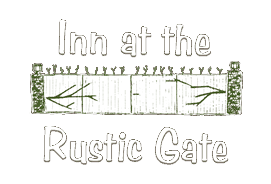From The Innkeepers
February 2025
Think on these things, for they are true
A Blog for February 2025
From a reader’s perspective, I love the months of January and February, because of the gift of new things to read. January follows on the heels of Christmas, and there are usually some books under the tree for me to curl up with. February follows on the heels of my birthday at the end of this past month, and once again I’ve been gifted with new stories or new ideas to give me pause. This winter’s recent cold spell was perfect for my hibernation with words.
For this month’s blog, I’d like to share with you some new ideas that I’ve tripped across in my meandering through the new books in my life.
I was first introduced to Margaret Renkl through the New York Times. She is an essayist/opinion columnist who writes periodically about nature in her corner of Tennessee near Nashville. Her new book this past year is called “The Comfort of Crows-A Backyard Year”.
This work is beautifully illustrated by her brother Billy Renkl who provides many feasts for the eyes to accompany his sister’s words. I decided to read this book one week at a time, as it is how she has it organized. I read her text at the beginning of the week, and then compare what is going on in her natural world versus what is happening here outside at the Inn. For example, she spotted a robin in the first week of January. Woodpeckers and crows are our most frequent visitors these days-our robins are two to three months and several hundred miles away from us. Though I find these comparisons interesting, perhaps the most important “takeaway’ so far from reading the first five weeks of her entries for the year is that we must learn to stop and really look, with ardent attention to the details of the natural world around us. Only then will we learn to appreciate the kinship we share with other inhabitants besides ourselves. She puts it this way:
“The world lies before you, a lavish garden. However hobbled by waste, however fouled by graft, and tainted by deception, it will always take your breath away. We were never cast out of Eden, we merely turned from it and shut our eyes. To return and be welcomed, cleansed and redeemed, we are only obliged to look”
Along the same vein, a second book I want to share with you is “The Serviceberry” by Robin Wall Kimmerer. She is an environmental scientist, botanist, and university professor. Some of you may be familiar with her groundbreaking work “Braiding Sweetgrass”.
In this new book she uses the Serviceberry tree as an example of how to live in the natural world, for it teaches us about how to share our abundance with others. This tree unselfishly offers up its tasty berries which are abundant in the springtime. Unlike the often hyper-consumption practices of human beings, this tree takes from the earth only what it needs to survive, and it gives back in the form of its berries, its branches as a nesting place for birds, its flowers as a source for the pollinators to do their work, and then its leaves as a winter cover and nutrient layer for the soil beneath it.
Using the Serviceberry as a model, she speaks of the importance of shifting from an extractive economy to a gift economy. Our climate catastrophes such as wildfires, hurricanes, floods, etc. are the consequences of our unrestrained taking of the gifts of the earth. If our responses to the earth were gratitude followed by reciprocity, it would serve to diminish our desire to always want more.
A gift economy operates on the principal of earthly abundance as opposed to scarcity, where the object is to take as much as I can, while I can, for there may not be enough. A gift economy thrives on the fundamental principles of mutualism and co-operation, and is circular rather than linear. Our capitalist economy focuses on a linear movement of a concentration of goods upward toward the top 1% who are the controllers of the majority of all wealth as measured by bank account balances or stock market values. But as she points out, wealth also has to do with cultivating green spaces, growing a garden, volunteering, families caring for their young and their elders, and other aspects of supportive living in a gift economy that cannot be measured on a stock market index or tracked on spreadsheets. In contrast, she speaks of the importance of creating communities of reciprocity whose only currency is sharing. She sums up her entire work of this book with four simple words on the back cover: “All flourishing is mutual”.
Some of you may wonder or even take exception to the naming of this blog- “Think on these things, for they are true”. These words actually came from a song by Sweet Honey and Rock, where the songwriter was reflecting upon some of the things her mother taught her as a child. The fact that we live in a divisive culture, and that your truth may not necessarily be my truth does not escape me. Truth is relative we might say. It is my hope however, that maybe by thinking on these things, someday we can make them ring true for all.
Have a good month.
May the blessing of joy come your way.
Marcia, Pat, Sharon, and Ryan
Keepers of the Rustic Gate.
